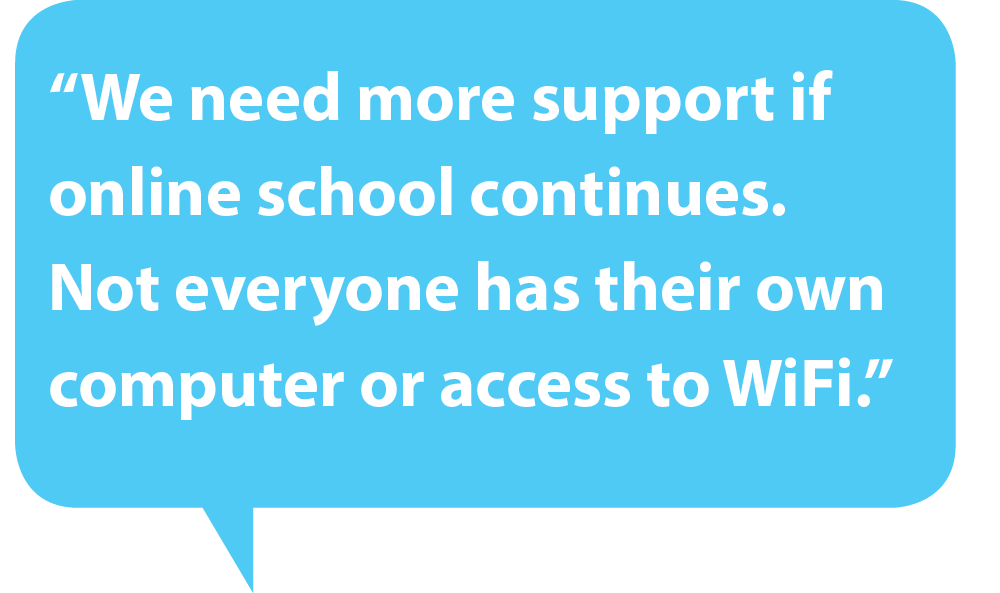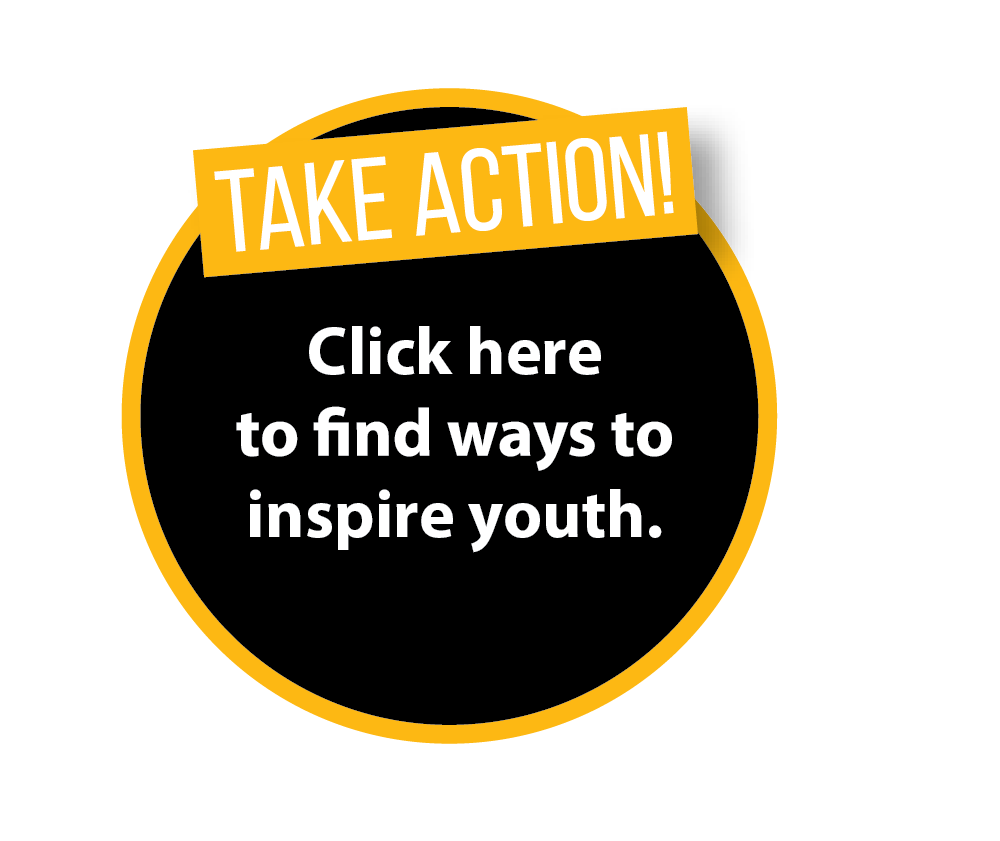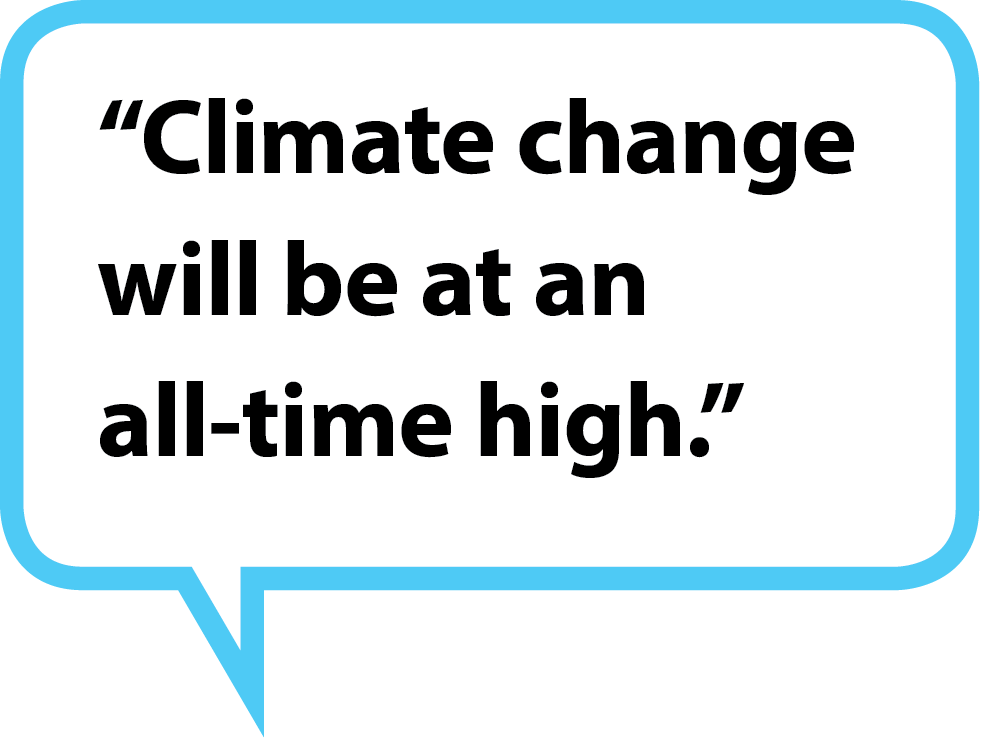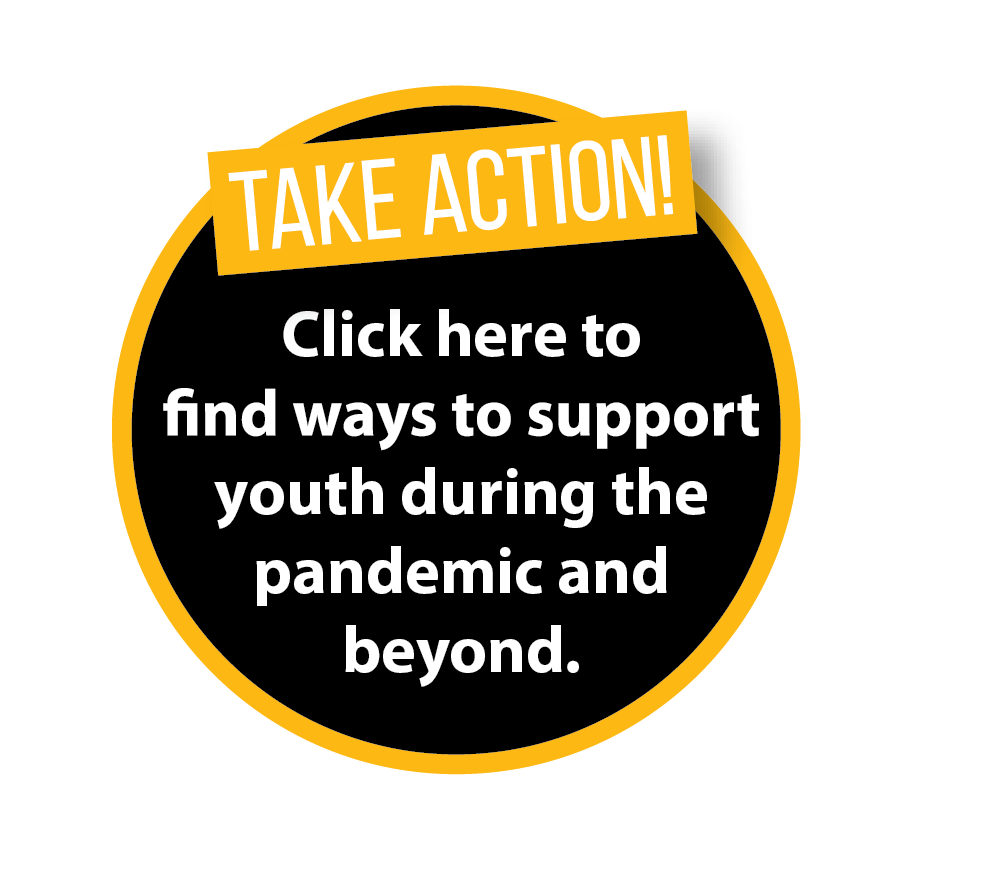
INSIGHTS FROM 2020
Since June of 2020, Youth Culture has been on a mission to hear the voices of youth to understand their experiences during the pandemic.
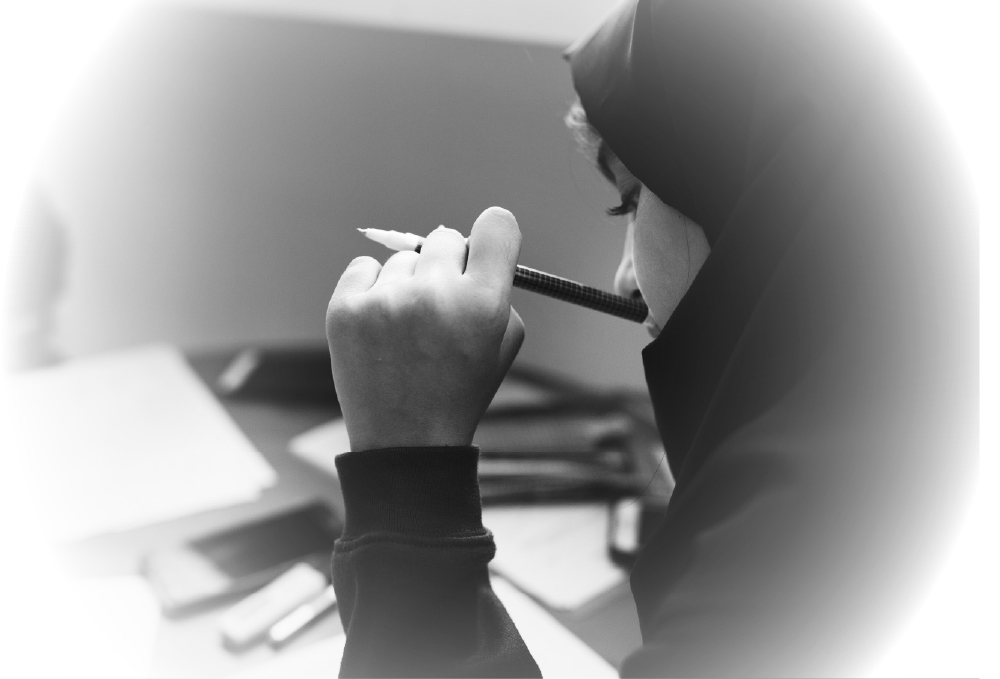
Through online surveys, virtual focus groups, and one-on-one interviews, over 200 youth representing a wide range of diversity in race, gender, socio-economic status, and other factors were surveyed. Intentional inclusion of underrepresented groups resulted in responses from young women, Black, Indigenous and People of Colour community members, and youth with disabilities. While some of the recurring themes of struggle for youth are widely known, the testimonials that follow are indicative of the complexities of the pandemic from the a lens of equity, diversity and inclusion.
Youth participation who self-identified* as:
• Gender: Female (45%), male (32%), non-binary (4%).
• Black, Indigenous and People of Colour (62%), People with disabilities (2%)
• Age: 15-18 (68%), 19-24 (24%), 14 and under (8%)
*Self-identification was not mandatory
Lack of Motivation
Lack of motivation was a prevalent theme with youth at a loss for how to plan their days, and establish new structures and stability. Youth in marginalized communities find comfort and support through extracurriculars like sports and other clubs. Without this in-person socialization and hubs of belonging, lack of motivation can lead to deterioration of mental health and depression.
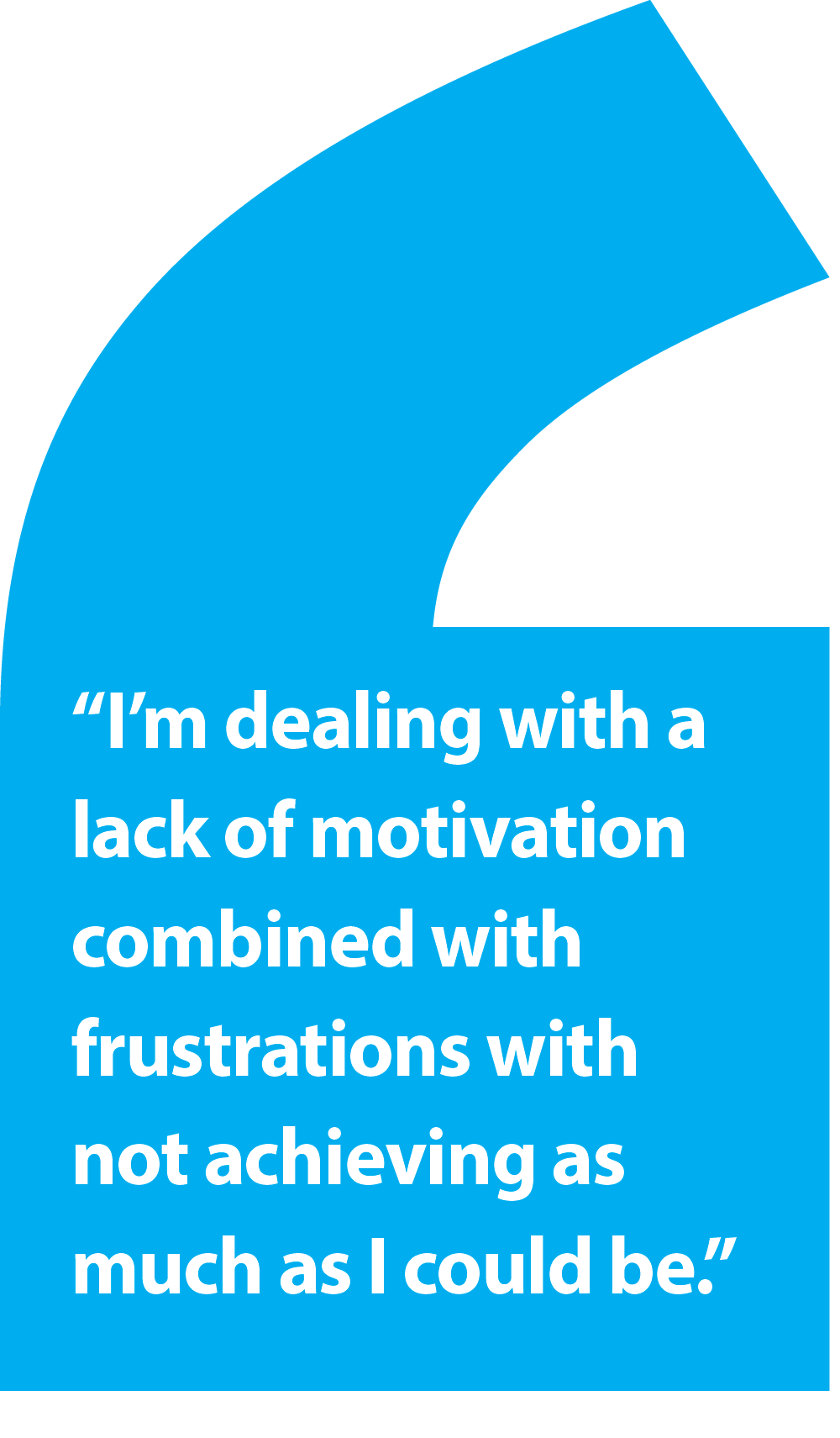
“It has been absolutely challenging to keep up with daily habits and maintain a productive momentum. Without that stimulating environment of school and motivating friends it was very difficult to meet personal goals.”
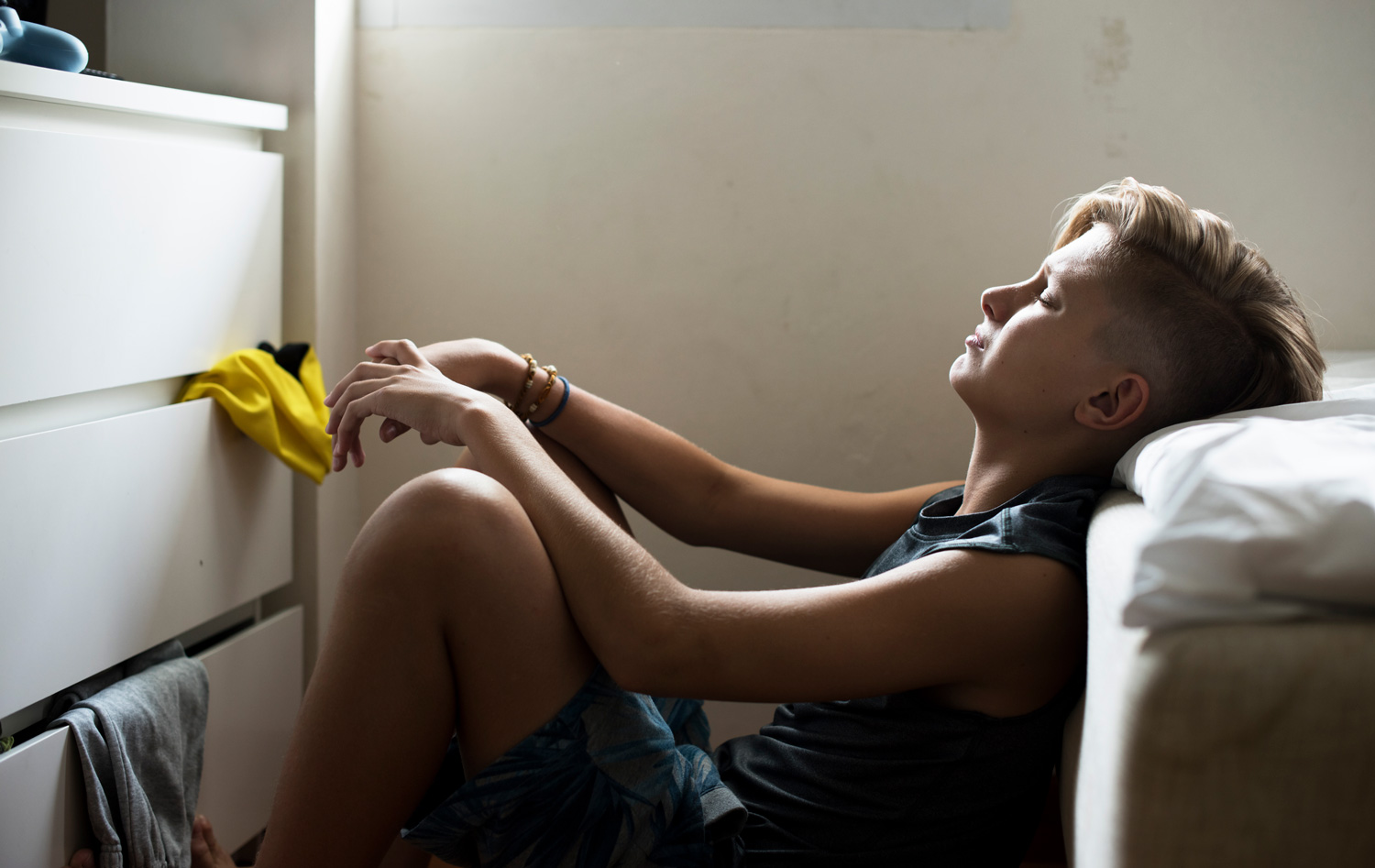
%
Struggled with a lack of motivation
“In the past, I was able to separate my school work and relaxation time at home. I used to spend most of my time at school working and learning, and recognized that when I got home, I was able to relax. This separation of home and school helped keep me productive and motivated. Now, the transition to working at my desk in my room, doing my job in my room, and relaxing in my room has caused my motivation and productivity to decline.“
“Constantly staying at home and a sudden change in my lifestyle, was very difficult because I had no clue how to live my life. My routine was completely gone, and I had way too much flexibility to spend my time, but only access to my house and the Internet.“
Youth Culture launched free virtual workshops on time
management and self-care. youthculturelearning.com
Lack of Motivation
Lack of motivation was a prevalent theme with youth at a loss for how to plan their days, and establish new structures and stability. Youth in marginalized communities find comfort and support through extracurriculars like sports and other clubs. Without this in-person socialization and hubs of belonging, lack of motivation can lead to deterioration of mental health and depression.
%
Had a fear of the unknown
“Before the pandemic my mental health wasn’t the best, but everything got worse after all the social distancing and self-isolation. All of the things that I loved were put on pause. All the things that I counted on to keep me going were taken away. I started slipping deeper into my depression and the fact that I didn’t have anything to do on a day-to-day basis left me lacking motivation.“
“This is hard to understand: watching others not practice social distancing on social media and trying to remember the importance of it.”
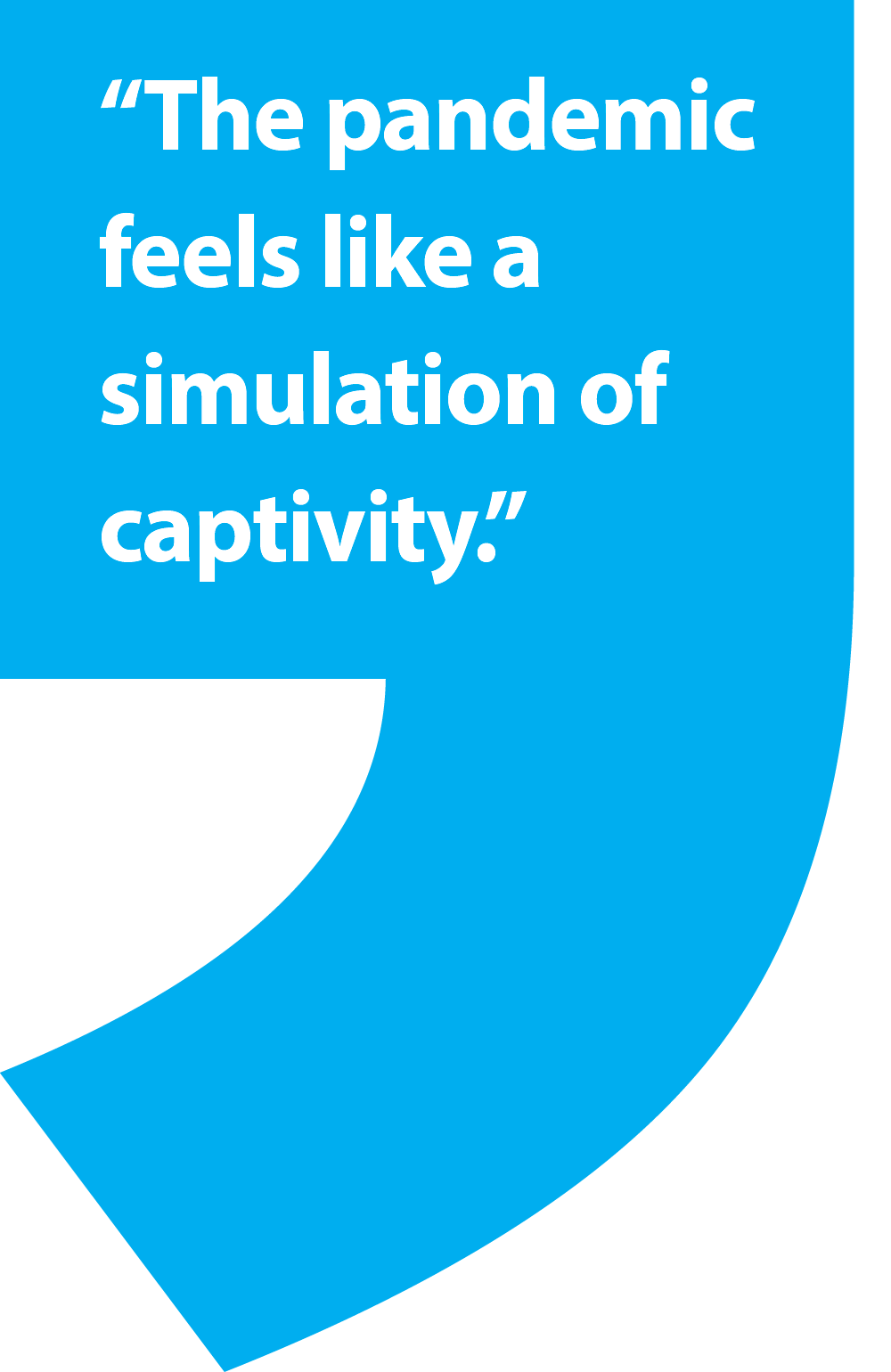
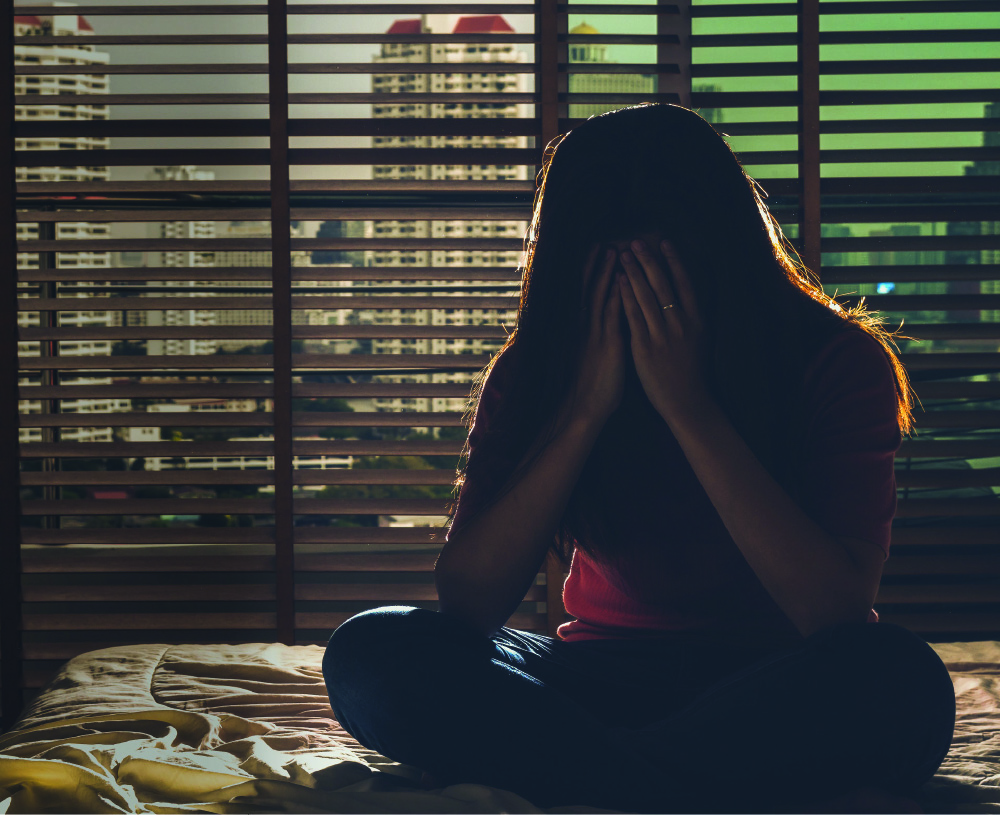
%
Experienced loneliness
“For me, the worst parts of self-isolation are 1) being around the same people for too long and 2) missing the feeling of being around people. As much as I love my family, always having everyone at home at the same time, at a time when everyone is on-edge and tense, is really difficult. We all have strong and contrasting personalities, and it sounds a little dramatic, but self-isolation has made it such that we barely get a break from each other.“
“I became a little bit hysterical when I decide to go out, even just to accompany my parents to buy groceries. I am afraid of the possibility of catching novel coronavirus from people, in addition to myself having the virus without knowing so.“
Youth Culture launched a Just Breathe resource page with mental health resources and tips for self-care.
youthculture.com/justbreathe
Lack of Opportunities
From summer jobs to fall internships to co-op gigs, during the year of 2020, youth missed out on work experience and hands-on learning opportunities. For marginalized youth who relied on income and experience for their future, it was devastating for their personal and professional career journeys.
%
Felt that they could’ve made more of a difference during this time by expressing their voice and being a part of industry and government problem-solving initiatives.
“The worst part of self-isolation is how we are not able to get the attention we need from the outside world. We all have dreams and goals that we want to fulfill, however to do so you need experience in the outside world. You need to be able to share your voice, opinions, and beliefs to those who can help shape your future. Self-isolation has made getting experience and sharing your voice difficult.“
Felt that they could’ve made more of a difference during this time by expressing their voice and being a part of industry and government problem-solving initiatives.
“How am I supposed to get any experience for my future? I have no idea where to start.”

“So many of the summer jobs/opportunities I applied for were cancelled due to COVID-19. These would have been helpful as experience to write on my resume and university applications for next year.”
%
Felt they had no way to connect with industry and government to problem-solve, support communities and make a difference
Youth Culture launched a free virtual Career Discovery & Essentials Certificate program, and Industry Learning Pods for youth to network with industry professionals. youthculturelearning.com
In what areas of your life could use support?
- Online Learning 42%
- Finding Opportunities to Connect with Others 42%
- Physical and Mental Health 34%
- Career Exploration & Information 32%
- Don’t Need Any Support 5%
Innovative Youth

Namirah Quadir
Since March of 2020, Namirah has served as a capacity-building lead of a national COVID-19 response group to coordinate the manufacturing and distribution of more than 50,000 pieces of personal protective equipment to vulnerable communities across Canada. She was recently promoted to president of this organization Project Northern Lights.
 Kamaldeep Dhillon
Kamaldeep Dhillon
Since the pandemic, Kamaldeep has become more involved in supporting youth in her community through youth wellness hubs and Youth Culture initiatives. Kam also found a way to explore her passion for the environment by taking a leadership position in her school’s eco-club.
 Nubia Thomas
Nubia Thomas
Nubia attended Youth Culture’s Be Your Own Boss Entrepreneurship Workshop presented by TD. It was there that Nubia shared her passion for art and business. Nubia has been drawing since she was young and she enjoys both digital and traditional art. Nubia recently opened her own shop on RedBubble and was commissioned by Youth Culture to illustrate their holiday card in 2020.
 Jaimil Dalwadi
Jaimil Dalwadi
By summer 2020, Jaimil realized that he would need to make the most of self-isolation. He decided to take his love for technology to the next level and he became president of his school’s Hack Club. He also started building new connections for his career aspirations in quantum computing. He has become a Tech Blogger at Youth Culture and regularly interviews industry professionals for their podcast.
Future Concerns
After one year following the outbreak of COVID-19, the roll-out of the vaccine continues and a new fear arises of the highly contagious variants. Young people shared their voice and concerns about the new normal.
Environmental Concerns
“There will be a ton of waste produced by all the PPE.”
Social Impact
“i am concerned about how the world will work with the conflicted mindsets of the people who take the vaccines and those who don’t.”
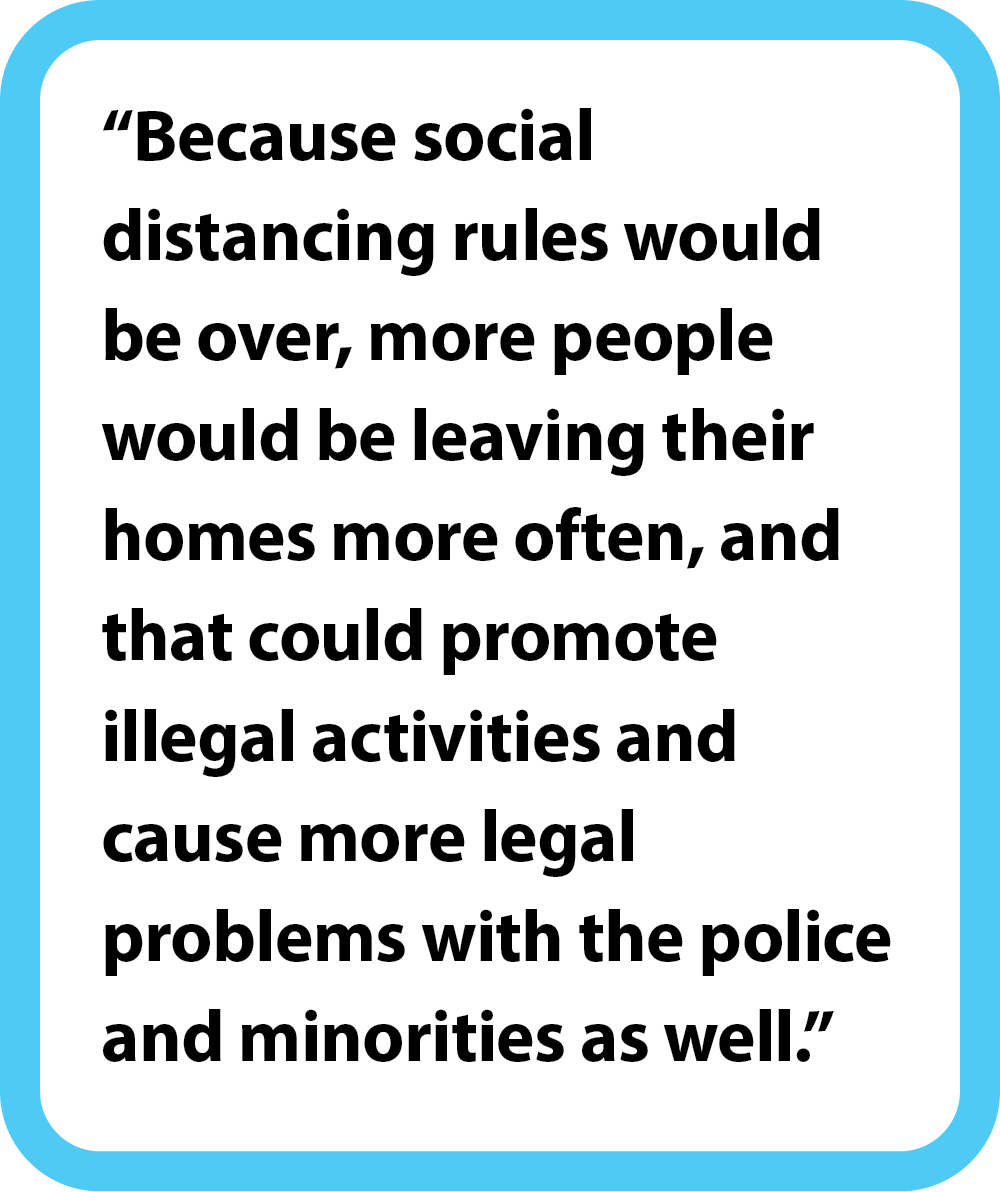
Online Education
